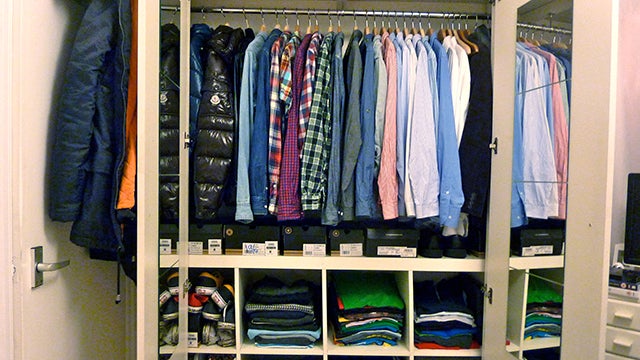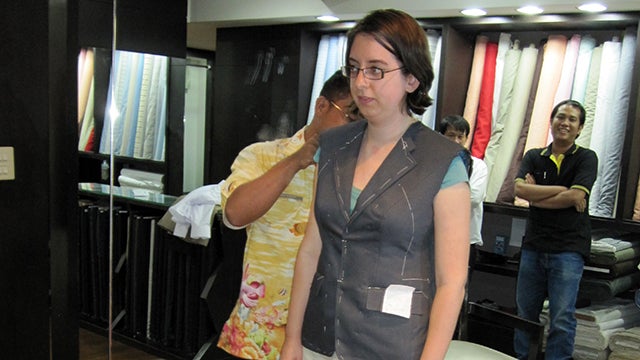Most of the time people are focused on losing weight because they want to look better. Although that’s a good enough reason for many people, there are other reasons that can benefit anyone who is carrying too much weight. There seems to be a never-ending series of medical research studies coming out that have found new ways our health is damaged by being overweight. There has been a desire to be thin in many societies for a very long time, but now we know there are many more benefits than just looking better. For some people, losing weight can actually prolong their lives. Be on the lookout for the following signs that may be telling you it is time to start thinking about dropping some weight.
1. Difficult Exercise
Anyone who really cares about their health should be exercising. There really is no replacement for it. if you have found it uncomfortable and difficult to complete your exercise routine because of your size, it’s definitely time to get serious about losing some weight. Exercising when you are overweight could put a greater strain on your heart and make it a bit more risky than it is for someone who is considered a normal weight.
2. Snoring
If you find that you are snoring a lot more and a lot louder than you used to, it definitely could be a sign that your weight is becoming a problem. Snoring can disrupt your sleep even when you are not aware of it, and chances are good that you’ll not feel fully rested when you wake up. Excess fat that tends to accumulate around the neck can make your airway smaller, which can lead to increased snoring and even sleep apnea, which can become life-threatening.
3. Soreness
In some cases, excess weight can cause various places to feel sensitive and more likely to become sore to the touch. Inflammation can affect the fatty tissues that are just below the skin’s surface which causes this condition. Losing some weight can help alleviate this problem.
4. Feeling Tired
Feeling worn out all the time is another thing excessive weight can cause. Inflammation is the culprit here again, and it happens due to all that excess weight. If you find yourself feeling exhausted when you are just doing things you have always done, like walking up stairs or walking your dog, it’s a sign that extra weight is putting too much strain on your body.
5. Always Hungry
This can certainly happen if you are going too heavy on the junk food, which is notoriously bad for keeping you feeling full, but it could also be a sign of type 2 diabetes, which is something that should surely get you to pay attention to your health. Other signs that diabetes may be developing are tingling, or numbness in your extremities, blurry vision and increased urination. Diabetes is a scary word to many people, but type 2 diabetes can often be reversed through weight loss and diet if someone is serious about improving their health.
6. High Cholesterol and High Blood Pressure
These are two potentially deadly problems that can have a very serious impact on your health. The good news is that both of these conditions can very often be reversed through lifestyle changes much like type 2 diabetes. Much of the time, even modest weight loss can improve upon or reverse these conditions.
7. The Bulge
If your waist is larger than 35 inches, there’s a good chance that you have too much belly fat, and recent research has found that to be a significant health risk. Using the “above 35” number doesn’t work for everyone, since people come in all different shapes and sizes, but it could be a hint that your weight is something you need to think more about. Excess weight around the midsection can contribute to your likelihood of having serious problems like heart attack, stroke, type 2 diabetes, and high blood pressure.
8. Family History
Too much fat can lead to the production of more estrogen, which is believed to be linked to breast cancer. Having a parent or grandparent who had cancer increases your risk even without regard for excess weight. Losing weight is certainly no guarantee that your cancer risk will be reduced, but most experts believe that keeping your weight under control can be a benefit.
9. Pain
If you start experiencing pain in areas such as your knees, hips and back, it could be due to the strain excessive weight is causing on those areas. Forcing your joints to support extra weight can actually wear them down, and with time it could make treatments like hip or knee replacement necessary.
10. History of Weight Gain
While it’s certainly natural and expected for a person to gain weight as they develop from childhood, into their teens and then into adulthood, there should be a time in your life when your weight stabilizes, and does not continue to increase. if you have been steadily gaining weight every year even after reaching adulthood, there’s a good chance that you are overweight or soon will be.
Source:- http://thinkingabouthealth.com/healthy-eating/10-signs-that-you-need-to-lose-weight/















